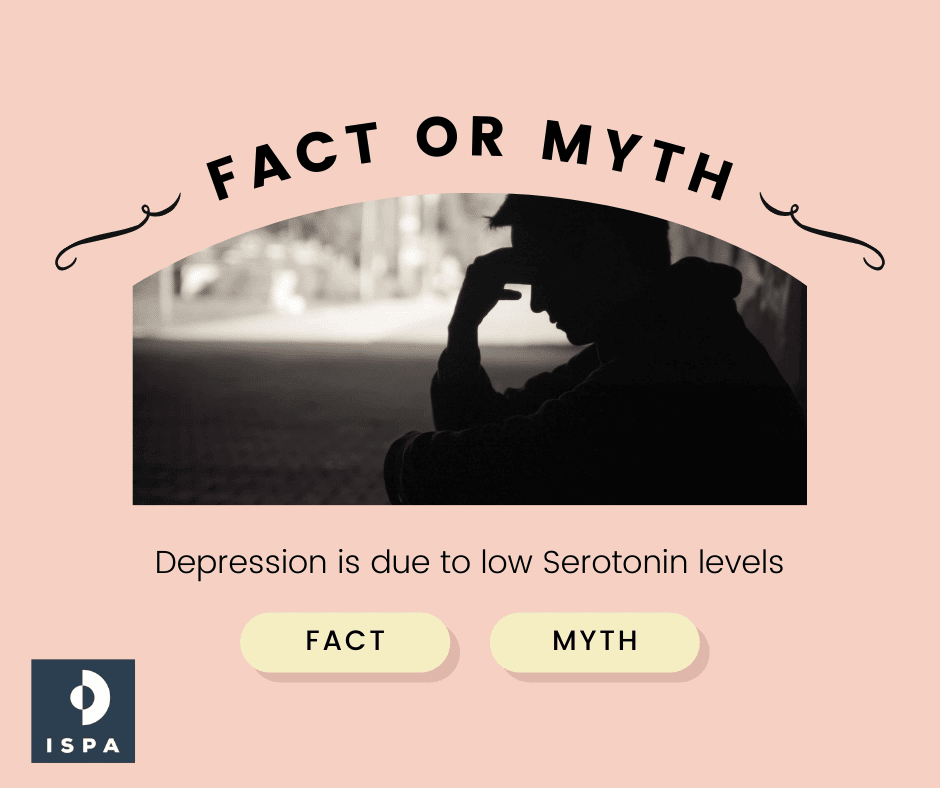
Myth of Course. Been Scientifically Debunked in Aug 2022.
Author of this copy: Dr Michael Yapko
Researchers for the original article: Moncrieff J, Cooper RE, Stockmann T, Amendola S, Hengartner MP, and Horowitz, MA.
For more than three decades, the depression story has been all about “too low levels of the neurotransmitter serotonin.” The newer antidepressants in the SSRI category (such as Prozac, Paxil, Celexa, and Lexapro) were said to raise serotonin levels and thereby reduce the severity and duration of depressive symptoms.
From the time Prozac as the first SSRI was released, the pharmaceutical industry has continued to push the serotonin story as its advertising mantra. With virtually no evidence at all, the drug companies made it seem as if there was good science behind their antidepressants.
Through relentless advertising as well as cleverly misleading articles placed in leading medical journals, the serotonin mantra became widely accepted by professionals as well as the general public. The belief was widely held that these drugs were safe and effective.
Anticipating astonishingly huge profits in the billions, the drug industry’s advertising strategy in the U.S. shifted away from physicians only to a direct-to-consumer approach: “Ask your doctor if Prozac is right for you!” The “shortage of serotonin” was an almost irresistible rationale for getting medicated and the promise that “you’ll be made better than well” struck a nerve in anyone and everyone who hoped that would be true.
Antidepressants continue to be the number one form of treatment for depression in the US, Australia, Iceland, Portugal, and many other countries around the world. Surveys indicate that 85-90% of the public believe that depression is the consequence of too low a level of serotonin or a “chemical imbalance” in the brain. The advertising of the myth has been exceptionally successful.
Now a major new study, “The Serotonin Theory of Depression: A Systematic Umbrella Review of the Evidence” published just a few days ago (July 20th) in the journal Molecular Psychiatry has dealt a serious blow to the serotonin myth. Through a most comprehensive review of the evidence regarding serotonin receptors and the presumed serotonin transporter molecules, the research team led by University College London psychiatry professor Joanna Moncrieff (author of The Myth of the Chemical Cure ) firmly concluded “there is no evidence of a connection between reduced serotonin levels or activity and depression.”
As most students of Dr Michael Yapko may know, he has been highly critical of promoting drug solutions for depression for many reasons. His primary and one major one: Depression is more a social than medical problem (see his books Depression is Contagious and Keys to Unlocking Depression ). Ignoring the many social and psychological factors that contribute to depression relegates antidepressants to the category of a one-dimensional under-treatment of a multi-dimensional disorder.
Michael Yapko has spent his whole professional life researching, treating, and writing about depression, a most serious and debilitating disorder. If antidepressants were completely safe and highly effective, he says he would gladly say “take them!” But…they’re not. And now, finally, the advertising myth that has given rise to a non-critical widespread acceptance of questionable drugs has been challenged and possibly seriously damaged. Let’s see what the fallout will be.
Source: Moncrieff J, Cooper RE, Stockmann T, Amendola S, Hengartner MP, and Horowitz, MA. (7.20.2022). “The Serotonin Theory of Depression: A Systematic Umbrella Review of the Evidence.” Molecular Psychiatry. DOI 10.1038/s41380-022-01661-0.


